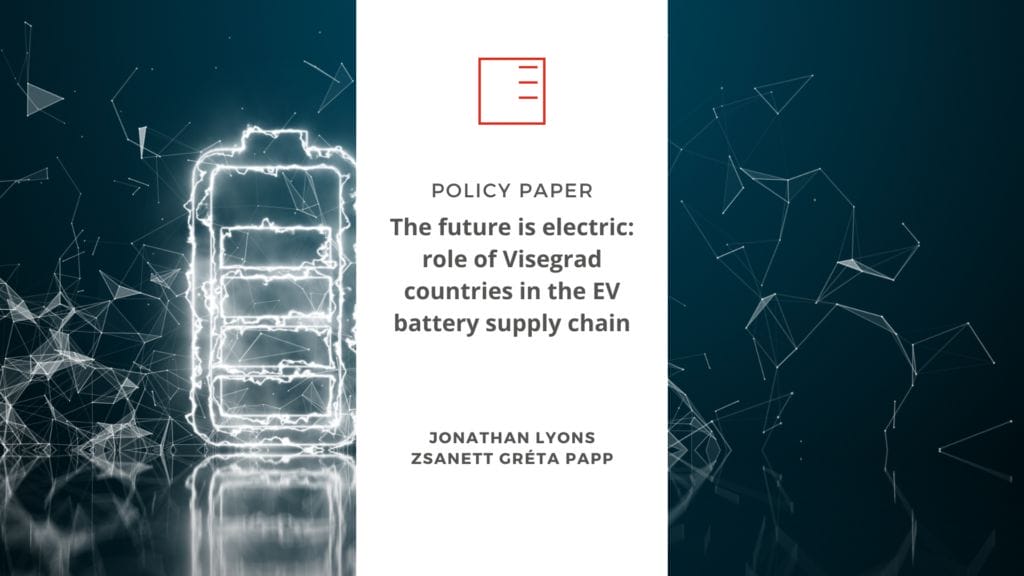Policy Paper | The future is electric: role of Visegrad countries in the EV battery supply chain

Despite the adoption of electric vehicles (EVs) growing and the sale of new cars with internal combustion engine (ICE) declining across the EU, the domestic production of EVs is still lagging behind the US and China. At the same time, the car manufacturing industry is critical for EU’s GDP, tax revenues and employment, accounting for over 11% of manufacturing jobs.[1]
The Visegrad Group (V4) countries – Czechia, Hungary, Poland, and Slovakia – are known for their high concentration of automotive industry. The V4 has been turning its attention to electromobility, particularly the production of EV batteries to support their and pan-European car industry. The energy crisis and the Russian invasion of Ukraine have speeded up those efforts.
To ensure a reliable supply of EVs, a reliable and sustainable supply chain for EV batteries is critical and spans from mining and refining of critical raw materials (CRM), to the manufacturing of EV battery components, to their end-of-life management (reuse and recycling). The V4 countries have started positioning themselves along the whole EV battery supply chain. While there is currently limited mining and refining in the Visegrad Group, the countries are exploring previously known deposits of CRM.[2]
Critical raw materials necessary for the EV battery production currently used are lithium, cobalt, nickel, manganese, graphite, and copper. These materials are sourced from a few countries, mostly outside of Europe. Therefore, reliable and sustainable sourcing of CRM is a primary concern for the EU. The EU is aiming to diversify its CRM sourcing and battery production in order to decrease its dependency on third countries. The V4 countries are well positioned to become
EU’s green manufacturing hub. However, with the increasing competition from both China and the USA, it becomes a matter of urgency.
Since 2018, several gigafactories have started being built across V4 countries, particularly in Hungary and Poland. Research and development in recycling and in new battery cell chemistries are important for a more sustainable supply of materials for battery production. V4 countries have also built facilities to contribute to that.
Celý článek najdete pod tlačítkem PDF.





